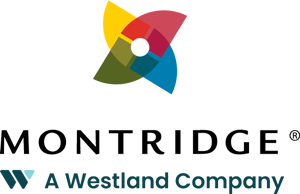Due to the COVID-19 pandemic, many businesses have closed their offices and employees are working from home. Many employees have incurred work-space-in-the-home expenses and are asking whether these expenses may be deductible from their employment income for the 2020 tax year.
The Canada Revenue Agency (CRA) is working on providing clarity on the availability of work-space-in-the-home expense deduction and has started consulting with business groups. It’s anticipated that the CRA will provide further guidance over the next couple of months.
Current Rules Regarding Work-Space-In-The-Home Expenses
An employee can deduct work-space-in-the-home expenses if they meet one of the following conditions:
- The work space is where the employee mainly (more than 50% of the time) does their work.
- The employee uses the workspace only to earn their employment income. The employee also has to use it on a regular and continuous basis for meeting clients, customers, or other people in the course of their employment duties.
In order for an employee to deduct work-space-in-the-home expenses the employee must be required to incur these expenses in accordance to the terms of their employment. The requirement to work from home does not need to be in writing and it is expected that employees forced to work from home under the current COVID restrictions will meet this requirement.
In addition, employers must provide the employee with a properly completed Form T2200 certifying that the employee is required to incur work-space-in-the-home expenses. The CRA has asked for input on a proposed revised “short-form” T2200. Business groups have provided input to the CRA that this revised form may help reduce administrative work but it is still a significant compliance burden for employers and have requested alleviating this burden by amending the T4 slip.
What expenses can be deducted?
The type of employment income earned will determine which expenses can be deducted. Employees that are paid commissions are eligible to deduct more expenses than employees that are paid by salary only.
Employees earning salary only are allowed to deduct the following expenses:
- Heat and electricity
- Cleaning materials
- Repairs and maintenance that specifically relate to the work space area
- A portion of rent
Employees earning commissions are eligible to deduct all of the above expenses, and also the following:
- A portion of property taxes
- A portion of home insurance
It is important to note that employees earning either salary or commissions are NOT eligible to deduct mortgage interest or capital cost allowance.
What about costs relating to home phone and internet service?
Home phone and internet service costs are considered supplies. Supplies also include items such as stationery items, stamps, toner and ink cartridges. Supplies are only those materials you use directly in your work, and used exclusively for work.
Monthly costs for basic home phone and internet service are not deductible as supplies as they would not be used exclusively in employment activities. Long distance charges for calls relating to work are deductible as supplies.
How do you calculate the deductible portion of work-space-in-the-home expenses?
To determine the portion of rent, property tax or insurance to deduct, the employee should compare the square footage of the area used as a work space to the total square footage of the home. The portion should also consider the personal use of the space if it is not exclusively used as a work space. For example, if the work space is 10% of the total floor area of the home and is used 50% of the time as a work space and 50% of the time for other personal use, a reasonable portion would be 5%.
Work-Space-In-The-Home Expenses: CRA administrative policies relating to COVID-19
The CRA has recognized that both employers and employees have been significantly impacted by COVID-19. As such, they have announced some temporary administrative policies as follows.
Home office equipment
A situation where an employee is reimbursed by their employer for home office equipment, and the employee retains ownership of the equipment, would ordinarily be a taxable benefit. The CRA has relaxed this rule so an employee can be reimbursed for the purchase of home office equipment upon submitting an invoice to the employer. The first $500 will not result in the assessment of a taxable benefit to the employee. Home office equipment would include items such as computer equipment, desks, or chairs.
Commuting costs
Where an employer reimburses employees for travel between home and a regular place of employment this would ordinarily be a taxable benefit to the employee. The CRA has recognized that, during the COVID-19 pandemic, an employee’s regular place of employment may be their home. As such, the CRA has temporarily allowed for commuting costs between the home and the employer’s place of business to be reimbursed to the employee without a taxable benefit being assessed to the employee.
Parking costs
Where employers provide parking to their employees at the employee's regular place of employment this would ordinarily be a taxable benefit to the employee. The CRA has relaxed this rule where if the regular place of employment is closed during the COVID-19 pandemic the employer-provided parking is not a taxable benefit to the employee.
Update:
Temporary Flat Rate Method
CRA has announced a new temporary flat rate method for claiming work-space-in-the-home expenses. This is a simplified method available for the 2020 year only and does not require supporting documents or a calculation of workspace details. You are eligible if you worked more than 50% of the time from home, due to the COVID-19 pandemic, for a period of at least four consecutive weeks. If you meet this condition, you can claim the following:
- $2 for each day worked from home during that period; plus.
- $2 for any additional days worked from home outside that period.
The maximum amount you can claim using the new temporary flat rate method is $400 (200 working days) per individual. Days that can be counted as a workday are any days you worked full-time or part-time hours from home. Sick leave days, vacation days, days off or days relating to another leave or absence do not count as a workday.
Detailed Method
The CRA has also created a simplified Form T2200S and Form T777S for those that choose to use the detailed method to claim home office expenses. The eligibility requirements are the same as the Temporary Flat Rate Method, however, you must have a completed and signed Form T2200S/Form T2200 from your employer. If using this method, you can claim the actual amounts you paid but they must be supported by documentation.
Home internet access fees
Monthly costs for home internet access fees are deductible, but the cost of the plan must be reasonable. Costs relating to connection fees or the portion of fees relating to the lease of a modem/router are not deductible.








